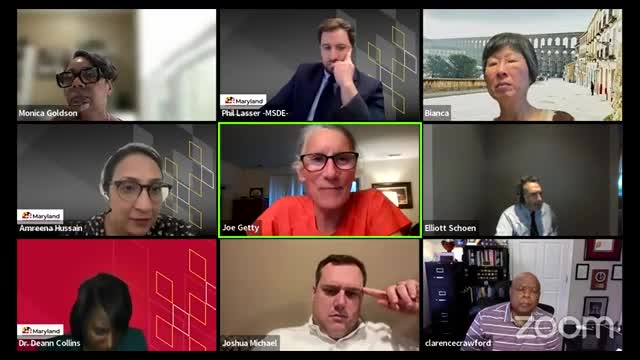Forum seeks language affirming instruction for multilingual classrooms
April 11, 2024 | Maryland Department of Education, School Boards, Maryland

This article was created by AI summarizing key points discussed. AI makes mistakes, so for full details and context, please refer to the video of the full meeting. Please report any errors so we can fix them. Report an error »

During a recent meeting of the Education Transformation & Accountability Committee, discussions highlighted the challenges teachers face in preparing for increasingly diverse classrooms. A participant raised concerns about the readiness of educators to effectively teach in environments where students come from various linguistic backgrounds, citing a personal experience with her granddaughter being the only white female in her class, which she described as a "mini UN."
The committee acknowledged the importance of providing teachers with the necessary materials and knowledge to support multilingual classrooms. They emphasized ongoing conversations with the English Learner Success Forum, focusing on the need for language-affirming instruction. This approach aims to respect and incorporate the diverse languages of students while ensuring they grasp essential concepts.
The dialogue underscored a commitment to enhancing educational practices that cater to all students, regardless of their language background. As Maryland continues to embrace its multicultural student population, the committee's efforts reflect a broader goal of fostering inclusive learning environments that empower every child to succeed.
In addition to this primary discussion, the meeting touched on various strategies to improve educational outcomes, reinforcing the state's dedication to addressing the needs of its diverse student body. The committee's work is crucial in shaping policies that will ultimately benefit families and communities across Maryland.
The committee acknowledged the importance of providing teachers with the necessary materials and knowledge to support multilingual classrooms. They emphasized ongoing conversations with the English Learner Success Forum, focusing on the need for language-affirming instruction. This approach aims to respect and incorporate the diverse languages of students while ensuring they grasp essential concepts.
The dialogue underscored a commitment to enhancing educational practices that cater to all students, regardless of their language background. As Maryland continues to embrace its multicultural student population, the committee's efforts reflect a broader goal of fostering inclusive learning environments that empower every child to succeed.
In addition to this primary discussion, the meeting touched on various strategies to improve educational outcomes, reinforcing the state's dedication to addressing the needs of its diverse student body. The committee's work is crucial in shaping policies that will ultimately benefit families and communities across Maryland.
View full meeting
This article is based on a recent meeting—watch the full video and explore the complete transcript for deeper insights into the discussion.
View full meeting
